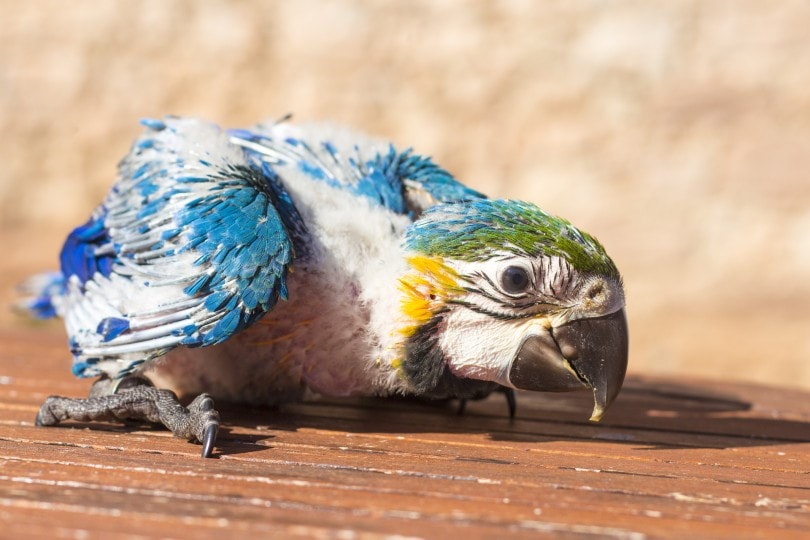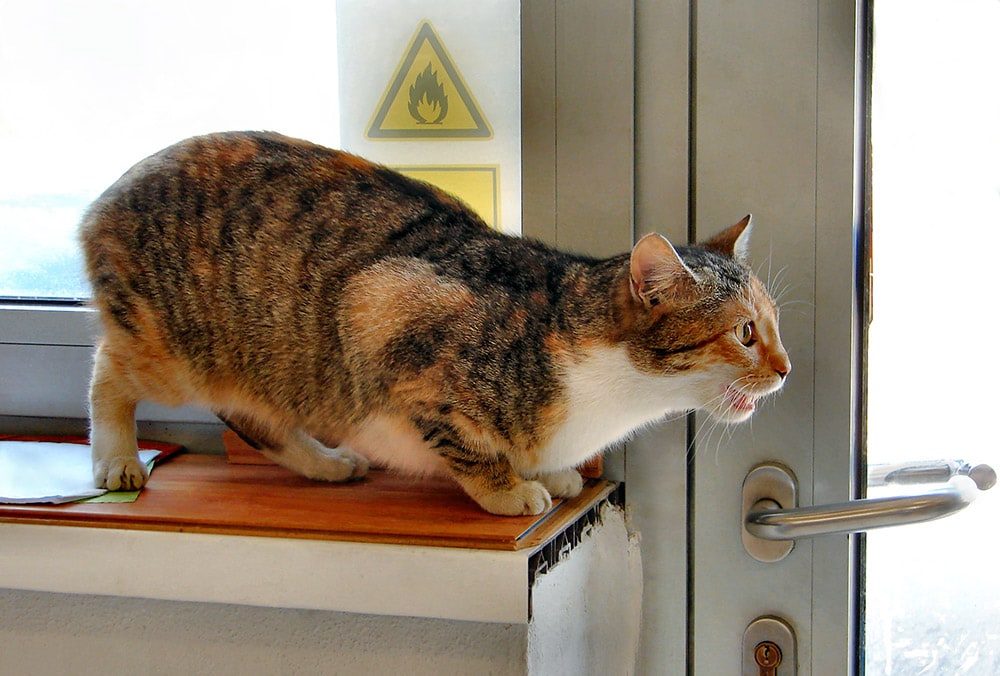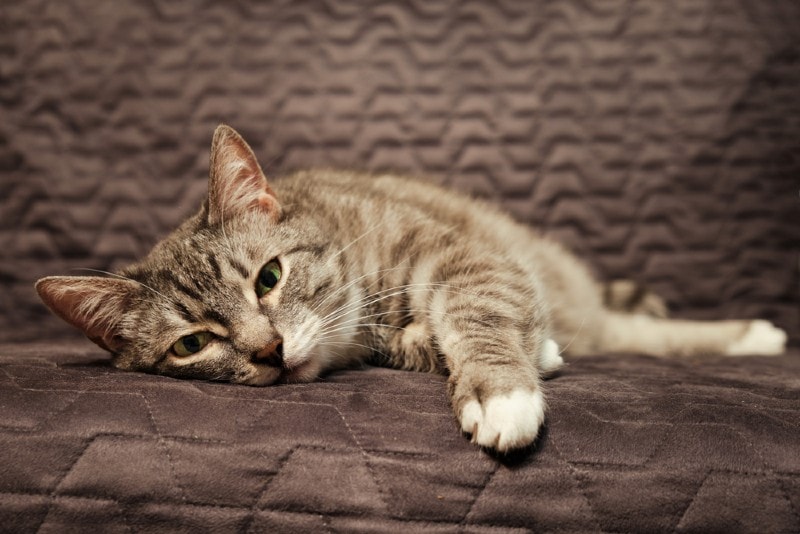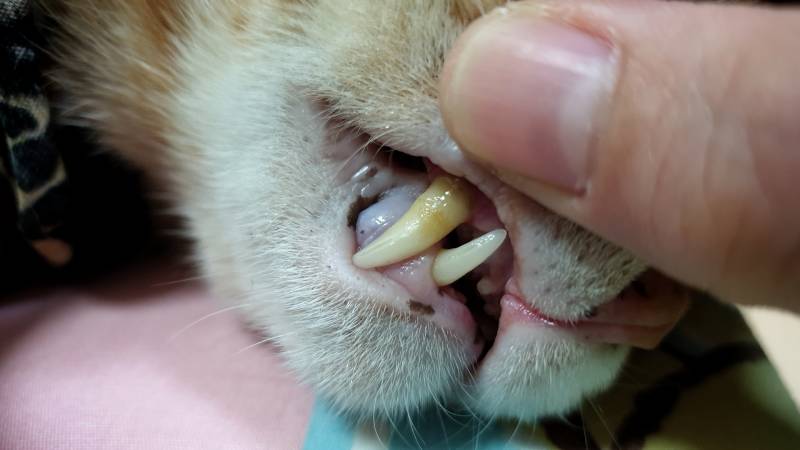VET APPROVED

The information is current and up-to-date in accordance with the latest veterinarian research.
Learn more »Click to Skip Ahead
Any Macaw purchased from a breeder is fully weaned, so no special care practices are necessary. However, if you are planning to breed Macaws or hatch Macaw eggs in an incubator, you must learn the ins and outs of taking care of babies because their needs are different from birds that are weaned and those that have reached adulthood.
The good news is that it is entirely possible to raise a baby Macaw into a healthy and happy bird. The bad news is that it’s not easy. Hand feeding is a big part of the process, which can be tough to master overall. But with a little direction and a great deal of commitment, you can succeed when all is said and done. Here is a guide to caring for baby Macaws that should make your job as the caretaker an easier and more pleasurable experience.

First Things First: It’s All About the Parents
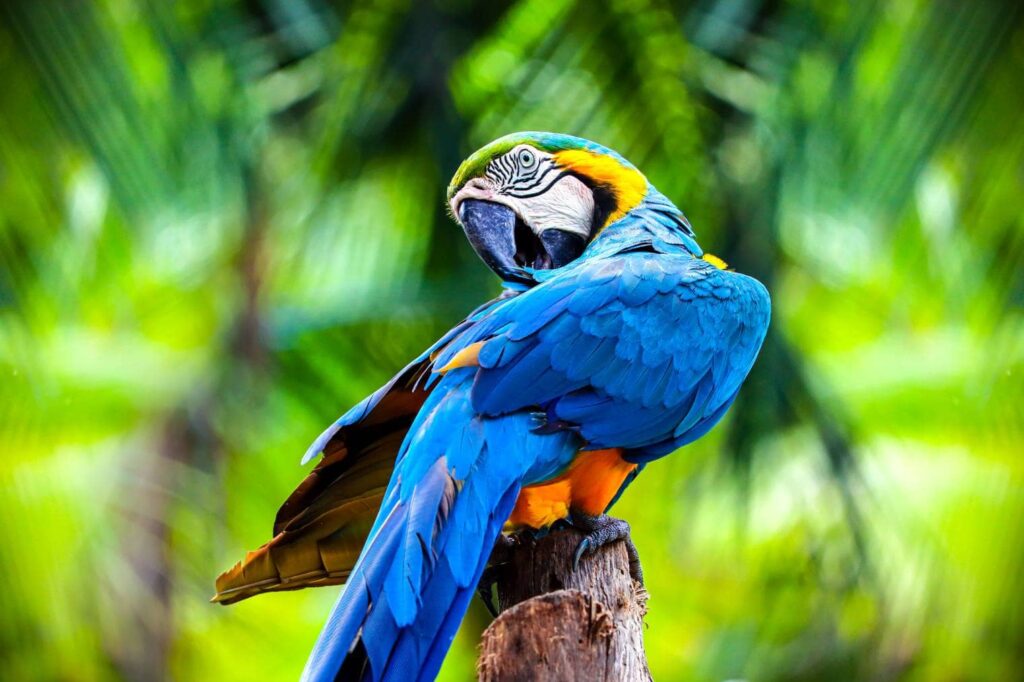
If a baby Macaw’s parents are in the picture, the parents should be doing most of the work when it comes to caring for the baby, especially during the first 2 weeks of life. It is important to offer the parents a larger amount of food in a wider variety.
In addition to a high quality pellet, try offering the parents the following foods:
- Fresh veggies like celery, carrots and peas
- Fruits like melon, bananas, and blueberries
- Whole grains such as oats
- Other seeds, nuts, and parrot-friendly foods the parents are accustomed to
If the parents aren’t used to certain food items, they may not accept them out of the blue. Therefore, it is important to introduce food items early on in your birds’ lives to ensure they have access to and accept them while they breed and rear young.
This extra food will be used by the parents to feed their new baby, which is why the types of food offered daily should greatly vary in terms of nutrition, flavor, and texture. All parrots feed their young by regurgitating a special secretion from their crops, known as crop milk. This is a semi-solid, crumbly excretion that is high in fat and protein. Therefore, optimizing the nutrition of parrots ensures they provide their hatchlings with high quality crop milk.
In addition to extra food, it is a good idea to provide more bedding in the habitat so the parents can ensure warmth and comfort for their babies. Acceptable bedding for young parrots includes paper towels, shredded paper, wood shavings, or soft towels.Bedding should be changed frequently to ensure hygiene of the nest. Avoid corn cob, walnut shells, and pellets when it comes to bedding. These come with various drawbacks. When using towels, only use soft towels that don’t have any frayed threads that a baby bird’s claws might get stuck in. While towels offer fantastic footing, they are more difficult to frequently clean.
Caring for a Baby Macaw on Your Own
There are certain circumstances where you might have to hand raise baby macaws. These include the following:
- One of both of the parents unexpectedly passed away.
- The parents are not experienced and aren’t raising their chicks properly.
- The chicks were hatched in an incubator, and there are no parrot parents willing to adopt them.
- You wish to hand raise macaws to ensure better sociability.
The biggest aspects of caring for a baby Macaw are feeding and warmth. Baby Macaws cannot feed themselves, so they will rely on you for every morsel of food that they consume. To start, you should gather all the tools necessary for the proper hand feeding of baby Macaws.
- Kitchen Scale: This is used to weigh a baby Macaw as they age to determine whether they are getting enough food to gain weight as they grow.
- Incubator: This helps keep baby Macaws warm during cold days and throughout the night.
- Bedding Material: Paper towel, shredded pepper, wood shavings, or clean towels are recommended.
- Pipettes and Syringes: These are used to administer specialty formula designed for baby macaws (like Kaytee Exact Hand Feeding Formula) to babies and chicks until they can eat whole foods on their own.
- Antibacterial Soap: This should be used before every physical interaction with a baby to ensure that they do not get exposed to germs.
Incubators and brooders should be set at the appropriate temperature for macaws. These are as follows:
- Hatching to 3 Days – 35.0-36.5° C (96-98° F)
- Day 3 to Day 14-21 – 31.1-34° C (88-94° F)
- 3 weeks to weaning – 25-30° C (76-86° F)
The ideal humidity setting for baby macaws of all ages is 55-70%.
At times you may notice your baby parrots eating their bedding. This is often an indication of nutritional deficiencies or inadequate feeding. Consult with an avian vet if you observe your baby parrots engaging in such behavior. Bedding should be changed at each feeding to ensure proper hygiene for baby birds that are being hand raised.
The Process of Hand-Feeding Baby Macaws
After preparing your baby macaw feed mixture by following label instructions, you are ready to feed your baby macaws with the following steps.
- Before you feed your macaw, check their crop. The crop should be completely empty between feedings. Food remaining in the crop too long may “sour” and result in an ill bird. Consult with your veterinarian if you notice a delayed emptying of your macaw’s crop.
- Gently hold the macaw’s head and beak with your hand; ensure your fingers are placed around their beak.
- Insert the feeding syringe into their mouth and release the feeding mixture into their mouth slowly.
- Watch for a feeding response – a macaw accepting the food will begin head pumping in response to the morsel placed in their mouth. When you notice this, slowly dispense the rest of the syringe’s contents into their mouth.
- Wipe their beaks after each feeding session. Ensure you thoroughly sanitize reusable syringes between feeding sessions. Syringes that are labeled as single use or disposable shouldn’t be used for multiple feedings.
- Sharing syringes among multiple baby macaws isn’t recommended, as this could spread diseases from a sick bird to a healthy bird.

Baby Macaw Feeding Schedule
Feeding baby macaws mostly depends on their age. For healthy baby macaws, the following is recommended
- Hatching to 1 week – should be fed every 2 hours
- 1 week to 2 weeks – should be fed every 2-3 hours
- 2 weeks to 4 weeks – should be fed every 4-5 hours
- 4 weeks to 3 months/weaning – should be fed every 4-6 hours
These feedings must be done through the night as well. It is advisable to work with some help in order to ensure that your baby macaw is cared for around the clock.
In addition, younger birds require different consistencies of baby bird formula
- Hatching to 2 days – Mix 1 tablespoon (approximately 10 grams) of dry formula with ~70-75ml of water. At this age, feed should be heavily diluted and only about 10% solid.
- 3 Days to Weaning – Mix 1/2 cup (approximately 65 grams) with 240-250ml of water. The formula should be about 20-30% solid, and have a slightly thick consistency.

Tracking Your Baby Macaw’s Progress
When hand-raising baby macaws, it is important to monitor their progress on a daily basis to ensure that they are growing properly, are disease-free, and are being fed adequately. Here are some tips to accomplish this.
- Weigh your baby macaw each morning, and keep a record of their daily weight. Your macaw should gain weight everyday up until they are weaned. If you notice your macaw not gaining weight or losing weight, set up an appointment with an exotic or avian veterinarian as soon as possible.
- Observe for plumpness. Healthy baby birds should have toes, wings, and rumps that appear plump.
- Examine their skin. Your baby Macaw’s skin should be flesh-toned pink in color. The texture of their skin should be soft and translucent.
- Notice symmetry. Check if your baby macaw appears symmetrical. Malnourished baby birds often have thin feet, toes, and wings. Their heads also appear disproportionately large when they are malnourished.
- Gently feel their crop. Crops should be completely empty before each feeding. If you notice a full crop, or a lump in their crop, consult with an avian veterinarian.
- Observe their behavior. Your baby macaws should anxiously seek food once they’re accustomed to being fed by you. If they suddenly appear lethargic and don’t want to eat food, they are most likely ill.
Weaning Baby Macaws
Baby macaws can be slowly weaned when they reach about 3-4 months of age. At this time, their flight feathers should be somewhat developed, and they should be steady on their feet when placed on a perch. At this age, perches in their cages should be near the bottom, and the cage should have soft bedding to cushion your baby birds if they accidentally fall off a perch.
During the weaning process, baby macaws will often want to test their flight feathers. It is a good idea to let them out of their cages, under supervision, in a room with minimal furniture, lots of soft bedding (example: mattresses), and no hazards (such as a ceiling fan, vents, open windows, mirrors, etc.). These sessions can help them practice flight.It is very important to not clip your macaw’s flight feathers while they are still developing. Immature feathers are also known as blood feathers and will extensively bleed if cut. If you intend to have your bird’s wings clipped, ask your veterinarian to demonstrate how to do so. Your veterinarian can also help you identify and distinguish a blood feather from a mature feather.
During the weaning process, your baby macaws will still require hand feeding, however they can be slowly introduced to solids. To do so, you may place their usual formula on a bent metal spoon, with some of their new food items (example: pellets, seeds) and offer them a morsel. Scooping the spoon in their food bowl will help them recognize that the bowl is a place where food comes from, and will likely get them to try out more foods that you place there. You should feed them their usual formula with a syringe at least 3-4 times a day to ensure that they are well fed.
It is normal for baby macaws to lose some weight as they wean. This is because they expend more energy learning how to fly, climb, and gain more mobility as they learn how to coordinate themselves. At the same time, their bodies are also rapidly growing more feathers as they mature and prepare for their first molt. However, if you notice your macaws losing more than 10-15% of their weight throughout the weaning process, have them inspected by your veterinarian.
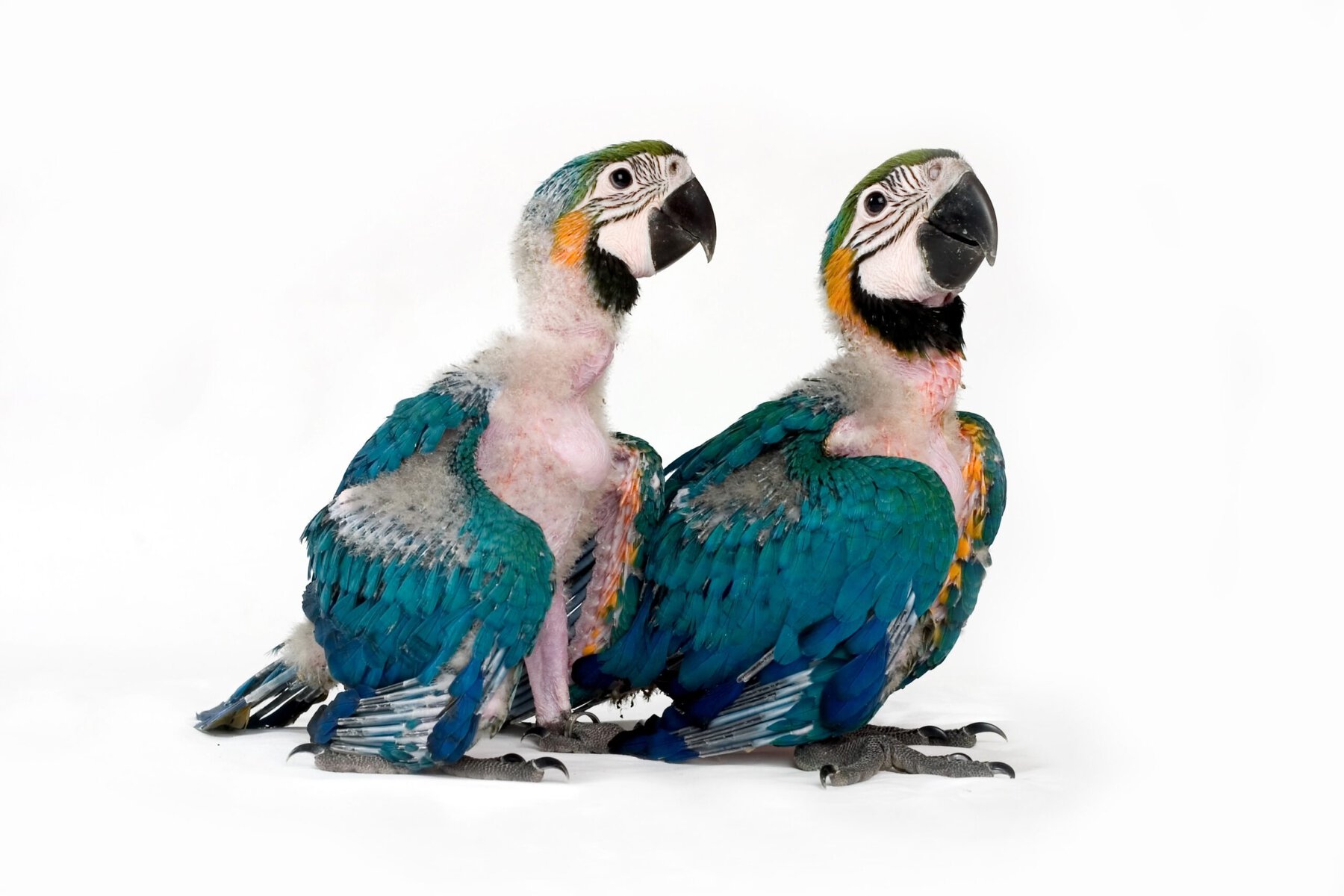
Working With a Veterinarian
As mentioned above, is extremely important to work with a veterinarian when caring for a baby Macaw to minimize the risk of making mistakes and to ensure that you are prepared to handle and problems that might arise, like the refusal of a baby to eat any formula for whatever reason. Regular veterinarian checkups should take place throughout your Macaw’s life.

Conclusion
Hand raising baby macaws is challenging, but can be a rewarding experience when done properly. Though it is true that the task becomes easier with repetition and experience, it is advised that you seek the input of a veterinarian throughout the process to ensure that your baby macaws are in good health and receiving adequate nutrition.
- You May Also Like: How Much Does a Macaw cost? Updated Price Guide
Featured Image Credit: VCoscaron_Shutterstock
